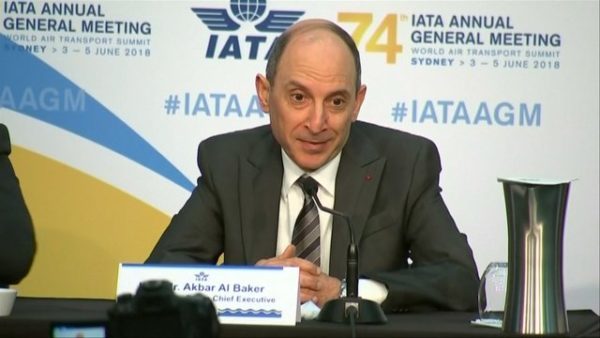By Valentine F.
As the end of the year approaches, Qatar is stepping up strategic choice declarations to achieve diversification of its economy and self-sufficiency, driven by its recent five-year development plan.
The Kingdom of Qatar airline has announced its possible separation from the Oneworld alliance. Qatar Airways could thus stand on its own. Akbar al Baker, president since 1997 held a speech on Tuesday, November 13 in Madrid at a conference organized by the International Air Transport Association (IATA). The origin of this position stems from the refusal of the founding companies of the alliance Oneworld to make agreements with Qatar Airways and repeated “attacks” of them, according to an article written by Fabrice Gliszczynski in The Tribune. The company seems determined to beef up its commercial strategy despite the diplomatic crisis that prevents it from flying over the airspace of Saudi Arabia and the United Arab Emirates. The company also intends to renew and improve its fleet by purchasing 50 Airbus last spring including a dozen long-haul A321LR. Not wanting to stop there, the CEO also expressed his desire to order a supersonic more powerful and equipped with 250 seats (against 100 for the Concorde) for an optimal return on investment. Tactical choices for a company owned 100% by the Kingdom of Qatar.
Strengthen its economic position with the Qatar National Vision 2030 And the country does not intend to stop there. To support its development, Qatar has embarked on a policy of economic diversification. And to deal with the blockade, in particular, he decided to diversify his exports (excluding hydrocarbons). Thus, on September 17, the country announced its intention to produce by 2023 electric cars of national manufacture. A unique project in the Middle East. No fewer than six factories will come out of the ground with the goal of producing 500,000 cars by 2024.
Another asset of this country, the gas. Qatar understands this and wants to produce more. At the end of September, another state-owned company, Qatar Petroleum, planned to increase gas production to 110 million tonnes a year. An increase following a previous 30% decided in 2017 amid a diplomatic crisis between the country and its four Arab neighbors.
A policy in response to the blockade imposed but not only. Indeed, it also has its roots in 2008 when the country was already thinking of getting out of its meadow. The General Secretariat for Development launched the “Qatar National Vision 2030” Plan which was intended to build a “bridge between the present and the future” and in which it envisaged its economic development and that of a social justice for all, in harmony with nature.
A five-year development plan to achieve self-sufficiency
Located in desert area, the country enjoys only very few natural assets. This places it 66th on the list of CO2 emitting countries. On March 14, the country launched a five-year development plan exclusively aimed at rationalizing energy consumption and encouraging the development of renewable energies. The whole should also allow to increase its level of self-sufficiency for agriculture and fishing. A wishful thinking when you know the extreme weather conditions of the country.
But the issue of food self-sufficiency is far too important to dismiss. The country multiplies the contacts in order to forge partnerships with foreign countries as during the visit in early November, a delegation of Algerian economic operators. Leaders of the Hassad Food Group in Doha, an investment fund specializing in agricultural products and directly attached to the Qatar Investment Authority, Qatar’s sovereign wealth fund, received them to form partnerships.
In 2012, the Sahara Forest Project Facility comes out of sand in Qatar after a first success in the Jordanian desert. The goal is to promote research and optimize environmental technologies for “restorative growth in desert areas around the world,” reads the project website. By the end of 2012, cucumbers were growing thanks to solar energy and water from the sea.
Qatar is therefore maintaining its goals as the World Cup approaches its soil to overcome the disadvantages of the economic blockade it suffers. After the recent position of the national airline Qatar Airways as well as the choice to beef up Qatar Petroleum’s gas imports, the way seems now open for other state-owned companies to strengthen their international competitiveness.



